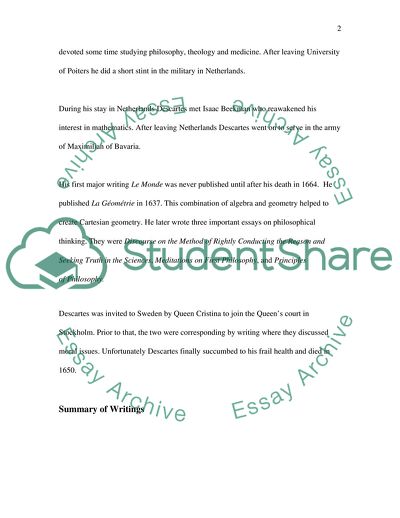Cite this document
(Political Theory of Rene Descartes Essay Example | Topics and Well Written Essays - 2500 words, n.d.)
Political Theory of Rene Descartes Essay Example | Topics and Well Written Essays - 2500 words. https://studentshare.org/politics/1721768-political-theory-of-rene-descartes
Political Theory of Rene Descartes Essay Example | Topics and Well Written Essays - 2500 words. https://studentshare.org/politics/1721768-political-theory-of-rene-descartes
(Political Theory of Rene Descartes Essay Example | Topics and Well Written Essays - 2500 Words)
Political Theory of Rene Descartes Essay Example | Topics and Well Written Essays - 2500 Words. https://studentshare.org/politics/1721768-political-theory-of-rene-descartes.
Political Theory of Rene Descartes Essay Example | Topics and Well Written Essays - 2500 Words. https://studentshare.org/politics/1721768-political-theory-of-rene-descartes.
“Political Theory of Rene Descartes Essay Example | Topics and Well Written Essays - 2500 Words”. https://studentshare.org/politics/1721768-political-theory-of-rene-descartes.


